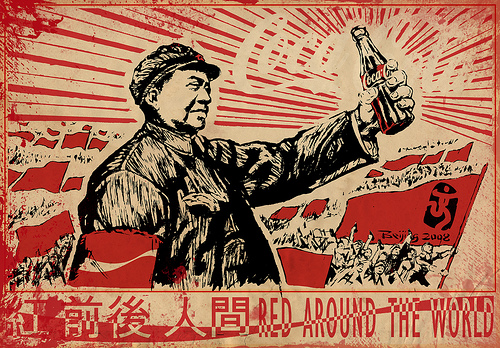

Now that the world's fully socialist regimes have burnt up or self-imploded, let's look at Marx's economic claim that the means of production will eventually be owned by the proletariat.
Throughout the 19th century, interest rates in Western Europe had been falling ( see AHistoryOfInterestRates ). Capital was getting cheaper by the year, and by the latter part of the century long-term rates on sovereign debt were below 3%. At the same time, Marx witnessed the unprecedented gains and growth of the Industrial Revolution, so it's not surprising that he thought the cost of capital could fall to zero.
Of course, he was extrapolating from a region where he had data to a region that did not, so his work needs to be read more as sci-fi rather than economics. Thinking from a possible-future perspective, what do see today?
From the early 1980's to the mid-2000's, global interest rates fell ( Bernanke's 'Global Savings Glut' ), echoing the falling rates of the 19th century. With the rise of the Internet, the costs of financial transactions, educational content, and computing have all fallen.
Perhaps the most lucrative goods demanded in the future will be producible by people with an education gained from online content and working on cheap computers. With capital requirements so low, the workers will own the means of production, and Marx's Revolution will have arrived.
Given History, that future state seems unlikely. Whenever one good becomes unscarce, it seems we either introduce some artificial scarcity (branding, cartels, etc.), or another good becomes the scarcity bottleneck.
An alternative future has the same cheap computers and education, with ideas ubiquitous. Everything online is easy and free. However, if you want to do it in the real world, it's much more difficult due to the higher relative capital and global security costs.
A Matrix-like future because it just seemed cheaper that way.